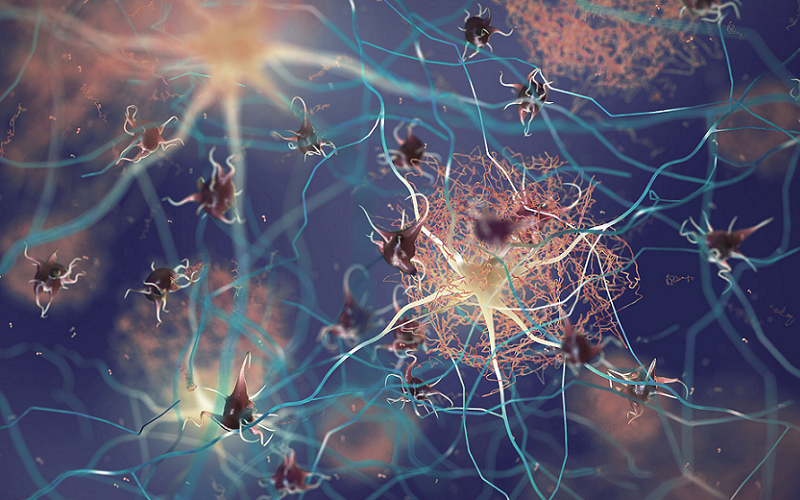
When we think of cognitive decline, our minds often picture the elderly grappling with challenges like memory loss and reduced mental agility. However, this narrative overlooks a critical and less-discussed aspect of cognitive health: early-onset cognitive decline in non-traditional age groups. This phenomenon, occurring in younger adults and even middle-aged individuals, is not only real but increasingly prevalent. Here we explore the causes and identify early-warning symptoms that shed light on this often-overlooked issue. Understanding these early-onset symptoms is crucial, not just for timely intervention, but also for breaking the stereotypes surrounding cognitive health.
Contents
Introduction to Early-Onset Cognitive Decline
Cognitive decline, a term often synonymous with aging, has traditionally been associated with the elderly. Yet, this narrow perspective overlooks a significant and increasingly prevalent issue: the onset of cognitive decline in non-traditional age groups, including younger and middle-aged individuals.
Definition of Cognitive Decline
Before getting into the specifics of non-traditional age groups, it’s essential to define what cognitive decline entails. Cognitive decline is the gradual deterioration of cognitive abilities, including memory, thinking skills, and the capacity to perform everyday tasks. It ranges from mild cognitive impairment to more severe forms, such as dementia. Traditionally, these symptoms have been linked with aging, but recent findings suggest that they can occur much earlier than previously thought.
Overview of Non-Traditional Age Groups Affected
Cognitive decline in non-traditional age groups refers to the onset of cognitive issues in individuals who are not in the typical age range for such decline, often younger adults and those in their middle ages. This demographic shift calls for a deeper understanding of how and why cognitive decline manifests in these younger populations, which is often overlooked in mainstream discussions about cognitive health.
Importance of Understanding Early-Onset Symptoms
The significance of recognizing early-onset symptoms in non-traditional age groups cannot be overstated. Early detection and intervention can significantly impact the quality of life and long-term outcomes for those affected. By expanding our understanding and awareness of these early symptoms, we can better support and provide appropriate care for those experiencing cognitive decline outside of the expected age range [1].
Understanding Cognitive Decline
In order to fully grasp the implications of cognitive decline in non-traditional age groups, it is first necessary to understand what cognitive decline encompasses and how it differs in younger individuals compared to the elderly.
Traditional vs. Non-Traditional Age Groups
Cognitive decline is commonly associated with the elderly, as it’s a natural part of aging. However, when cognitive decline occurs in non-traditional age groups – such as in younger adults or middle-aged individuals – it deviates from the expected pattern. These instances often go unrecognized or are misdiagnosed due to the general perception that cognitive decline is an issue exclusive to older age. Understanding the differences in symptoms, progression, and impact between traditional and non-traditional age groups is crucial for accurate diagnosis and treatment.
Causes of Early-Onset Cognitive Decline
Early-onset cognitive decline can be attributed to various factors, some of which differ significantly from those typically associated with late-onset decline.
Genetic Factors
Certain genetic predispositions can lead to early cognitive decline. Familial history of conditions like Alzheimer’s disease can increase the risk in younger individuals [2].
Environmental Influences
Exposure to environmental toxins, chronic stress, and traumatic brain injuries are known contributors to early cognitive issues.
Lifestyle Choices
Lifestyle factors, such as diet, exercise, and sleep patterns, play a significant role in cognitive health at any age. Poor choices can exacerbate the risk of early cognitive decline.
Comparing Early-Onset to Late-Onset Cognitive Decline
While early and late-onset cognitive decline share common symptoms like memory loss and difficulty in problem-solving, there are notable differences. Early-onset cognitive decline often progresses more rapidly than its late-onset counterpart and can have a more significant impact on an individual’s work and social life. Additionally, early-onset symptoms might be more subtle, making them harder to recognize and leading to delays in seeking medical advice.

Identifying Early-Onset Cognitive Decline Symptoms
Recognizing the early-onset symptoms of cognitive decline in non-traditional age groups is a pivotal step in addressing this complex issue. Here we look at the key symptoms to be aware of, emphasizing the subtleties and variations that might occur in younger individuals.
Early Warning Signs to Look For
Early-onset cognitive decline may manifest in various forms that are often easily overlooked or misattributed to stress or busy lifestyles. Here are some key warning signs.
Memory Loss
While occasional forgetfulness is normal, consistent patterns of forgetting important dates, events, or recently learned information could be a sign of early cognitive decline [3].
Difficulty in Planning or Problem Solving
Struggling with developing and following plans, working with numbers, or concentrating on complex tasks can indicate cognitive issues.
Changes in Mood and Personality
Shifts in mood, increased irritability, depression, or a noticeable change in personality might be early signs of cognitive decline.
Differentiating Symptoms from Normal Aging or Stress
It’s essential to differentiate the symptoms of early-onset cognitive decline from those related to normal aging or everyday stress. For example, occasional forgetfulness, such as misplacing keys, is typical with aging. However, consistently forgetting recently learned information or important dates may be a cause for concern. Similarly, stress can lead to temporary difficulties in concentration, but ongoing challenges in planning or problem-solving are more indicative of cognitive issues [4].
When to Seek Medical Advice
Understanding when to seek medical advice is crucial. If the symptoms mentioned persist or interfere significantly with daily life, it’s important to consult a healthcare professional. Early diagnosis can lead to better management of the condition and can potentially slow the progression of cognitive decline.
Screening and Diagnosis
Early screening and diagnosis play a critical role in managing cognitive decline. Medical professionals may use a combination of cognitive assessments, medical history evaluation, and possibly brain imaging to diagnose early cognitive decline. An accurate diagnosis is essential for appropriate intervention and treatment strategies.

Early-Onset Cognitive Decline Prevention Strategies
While addressing and managing cognitive decline is crucial, equally important is focusing on preventive measures. This section explores various strategies that individuals, especially in non-traditional age groups, can adopt to reduce the risk of early-onset cognitive decline. These strategies are not only beneficial for cognitive health but also enhance overall well-being.
Importance of Early Lifestyle Choices
The choices we make early in life significantly impact our cognitive health in the later years. It’s never too early to start focusing on habits that promote brain health.
Diet and Nutrition
A balanced diet rich in antioxidants, omega-3 fatty acids, and low in processed foods can help maintain cognitive function. Foods such as leafy green vegetables, berries, nuts, and fish are particularly beneficial.
Regular Physical Exercise
Physical activity increases blood flow to the brain and promotes the growth of new brain cells. It also helps in reducing stress, another risk factor for cognitive decline. Incorporating a mix of cardiovascular, strength training, and flexibility exercises is recommended [5].
Mental Stimulation
Engaging in activities that challenge the brain, like learning a new skill, playing strategic games, or solving puzzles, can enhance cognitive resilience.
Monitoring and Regular Health Check-Ups
Regular health check-ups are essential for early detection of potential issues that could contribute to cognitive decline. This includes monitoring blood pressure, cholesterol levels, and blood sugar, as these can impact cognitive health if not managed properly.
Awareness and Education
Educating oneself about the risks and signs of cognitive decline is crucial. Awareness campaigns and access to reliable information can empower individuals to take proactive steps towards maintaining cognitive health.
Stress Management and Mental Health Care
Managing stress and addressing mental health issues like depression and anxiety is vital. Chronic stress can adversely affect brain function, so adopting stress-reduction techniques like mindfulness, yoga, or therapy can be beneficial.
Sleep Hygiene
Quality sleep is critical for brain health. Poor sleep patterns have been linked to cognitive decline. Ensuring a regular sleep schedule and a conducive sleep environment can aid in maintaining cognitive function.
Social Engagement
Maintaining social connections and engaging in community activities can have a positive impact on mental health and cognitive function. Social interaction stimulates the brain and can reduce the risk of cognitive decline.
References
[1] Early-Onset Alzheimer’s Disease
[2] Mild cognitive impairment (MCI)
[3] 10 Warning Signs of Alzheimer’s
[4] Mild Cognitive Impairment
[5] Dementia – early signs

